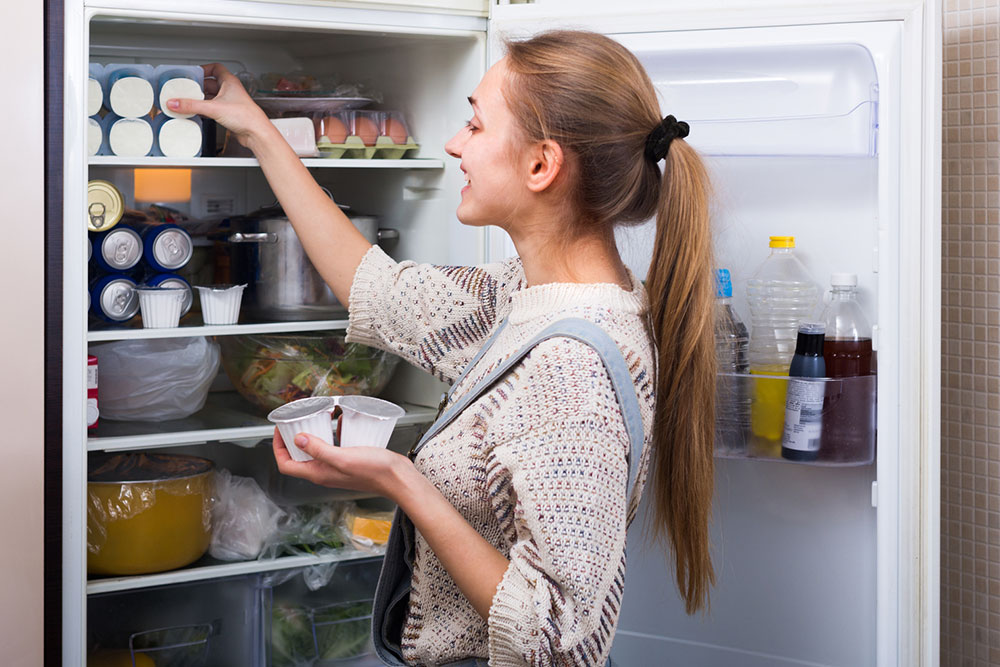
Refrigerating food – Food safety basics
A refrigerator is a vital kitchen appliance and a must-have in all homes. The idea behind keeping refrigerating food is to prevent bacteria growth and prevent food from getting spoiled. As per the FDA Food Code, all perishable foods must be refrigerated within 2 hours of cooking or buying them as it is a known fact that bacteria can double in number in perishable food in as little as 15-20 minutes when not stored properly. This article talks about some tips to keep in mind when refrigerating foods of all kinds to ensure that you avoid several health issues.
1. Cleaning the refrigerator
Keeping the fridge clean at all times is of utmost importance before refrigerating foods:
- Ensure that you unplug the refrigerator when you are cleaning it.
- Always scrub down the inside of a fridge, including shelves, drawers, and corners with warm, soapy water. After that, rinse them with clean water, wipe the surface with a sanitizer, and dry them with a clean cloth or paper towels. Avoid using cleaners as the taste and smell might pass on to the food or damage the fridge surface.
- Always keep the front grill of the fridge free of dust so that airflow to the condenser is easy, allowing for best cooling. Always clean the condenser coils with a brush or vacuum.
2. There are also some other things to consider:
- Food spillage
Ensure that you wipe out any food that has spilled in the fridge and sanitize immediately. If you want to thaw raw meat, do it in the bottom shelf in a covered pan so that there is no cross-contamination or spillage. - Segregation of meat
Refrigerating non-vegetarian foods properly is of great importance, and they need to be kept in a separate part of the fridge. Also, segregate raw meat, fish, and poultry separately as they need to be cooled more. - Storage
Any hot food or leftovers should first be brought to room temperature and then stored in the fridge as a sudden change in temperature can also spoil food. Proper storage is an integral part of refrigerating foods. - Raw vegetables and fruits
Keep raw food items like fresh vegetables and fruits in a separate compartment, the crisper bin as it helps retain moisture. Keep them in perforated packets to ensure proper air circulation. - Covering food
All the stored food items should be wrapped or covered well to prevent moisture loss and odor absorption. - Keeping the fridge salubrious
Clean out the fridge once a week, and discard any unwholesome food, both cooked and raw. In case you see molds, immediately throw that food item out and also check other food items near it for mold. - Eggs
Keep them in their original carton in the refrigerator and not directly in the egg tray or door shelf.
When stored properly, food remains fresh and safe for a longer time and its nutrients and flavors are retained. Make a note of these basics of refrigerating foods and ensure that your fridge has healthy food at all times.


